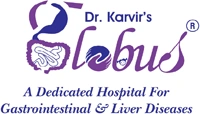Irritable Bowel Syndrome treatment in Mumbai
Disorders of the digestive tract are combined under the term inflammatory bowel disease. Ibd mainly affects the tissue present in the large intestine and results in ulcers and bleeding along with pain and cramps in the abdomen. The cause of ibd is still unknown. The two main types of ibd are :
- Ulcerative colitis – in ulcerative colitis inflammation of the tissue occurs in the lining of the large intestine(colon) and rectum.
- Crohn’s disease – crohn’s disease is characterized by inflammation of the lining anywhere in the digestive tract.
Both crohn’s disease and ulcerative colitis result in diarrhea, rectal bleeding, abdominal pain, weight loss, and fatigue. It may also lead to life-threatening complications if not treated well in time.
What are the symptoms of ibd?
The symptoms of inflammatory bowel disease may range from mild to severe depending on the place of inflammation. You may have bouts of active illness with intermittent bouts of remission.
Some signs and symptoms that are commonly seen in both crohn’s disease and ulcerative colitis are:
- Abdominal pain and cramps
- Fatigue
- Unexplained weight loss
- Blood in stool
- Little or no appetite
- Diarrhea
What causes inflammatory bowel disease?
The exact cause of ibd is not known but one possible cause may be an immune system malfunction. When the immune system fights off foreign bacteria that try to invade the body cells, it sometimes attacks the cells of the intestine as well. Ibd is more common in people who have a family history of someone suffering from the same disease.
What are the risk factors?
- Age – most people diagnosed with ibd are below thirty but sometimes it is seen in people above the age of fifty.
- Cigarette smoking – crohn’s disease is more common in people who smoke cigarettes.
- Non-steroidal anti-inflammatory medication – anti-inflammatory medicines such as ibuprofen, naproxen sodium, diclofenac sodium, etc. Increase the risk of contracting ibd or worsen the symptoms in people already suffering from the disease.
Complications
Some complications are commonly seen in both ulcerative colitis and crohn’s disease. These include:
- Skin, eye, and joint inflammation
- Scarring and narrowing of the bile duct, leading to liver damage.
- Blood clots in arteries and veins.
- Increased risk of colon cancer.
Specific complications of crohn’s disease:
- Malnutrition- diarrhea and abdominal pain make it difficult to eat proper meals ultimately resulting in malnutrition.
- Fistulas – inflammation can lead to the formation of fistulas near and around the anus which can be very painful if it gets infected.
- Anal fissure – fissure is a small tear in the tissue lining the anus. It results in painful bowel movements and may lead to fistula.
Specific complications of ulcerative colitis
- Severe dehydration – ulcerative colitis is characterized by diarrhea which can further lead to severe dehydration.
- Perforated colon – ulcerative colitis may lead to a hole in the colon.
- Toxic megacolon – the colon shows excessive swelling and may widen leading to a condition called toxic megacolon.
Treatment of inflammatory bowel disease
Ibd can be managed by prescribing medicines to reduce inflammation that causes sores. Lifestyle changes have a positive effect and help reduce stress and anxiety. To know more about Irritable Bowel Syndrome treatment in Mumbai contact us.
To book an appointment with Globus Hospital call on 98331 06104, 98331 87118 or visit our hospital at 201, Second Floor, Kothari Milestone Mall, Near Natraj Market, S.V Road, Malad West - 400064. For hospital directions click here.
Others Condition:
Bloating | Cancers of Stomach, Intestine & Liver | Constipation | Hirshsprung’s Disease | Gallstone | Dysphagia | Inflammatory Bowel Disease | Pancreatitis | SIBO | Barrett’s Esophagus | Blood in Stools / Vomitus | Celiac Disease | Diarrhea | Fatty Liver | Gerd | Irritable Bowel Syndrome | Piles


